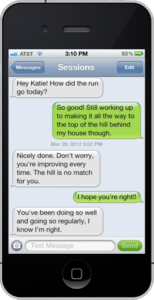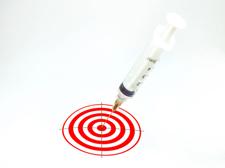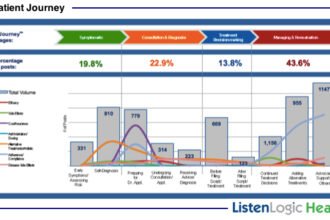I recently attended Rock Health’s Demo Day. Rock Health is a woman-owned, San Francisco-based health technology incubator that has been phenomenally good at picking the young health tech companies they nurture. Demo Day was “show and tell” for their latest class.
I recently attended Rock Health’s Demo Day. Rock Health is a woman-owned, San Francisco-based health technology incubator that has been phenomenally good at picking the young health tech companies they nurture. Demo Day was “show and tell” for their latest class.
The room was packed with entrepreneurs, investors, and interested others. The buzz was high…we knew were about to see the inventions of some very smart and creative people. And we were not disappointed. Here is a sampling of we heard:
MedMonk is a tool for pharmacists to obtain discounts for patients who can’t afford their medications. Inventor, Somaira Punjwani, a former Walgreen’s pharmacist in Cupertino, designed MedMonk to be an alternative to turning away patients who struggle with their co-pay. She told us that 30% of patients abandon their prescriptions at the pharmacy without filling them because they can’t afford the co-pay. When this happens, everyone loses – the pharmacy and pharmaceutical company lose a sale, the health insurer pays for the health consequences of an untreated condition, and of course, the patient pays the ultimate price – a decline in their health. MedMonk reverses this negative cycle by reaching out to pharma (and other) companies so that they can help cover the relatively modest cost of the co-pay. Now, the negative cycle turns into a win-win-win—and most important, the patient gets the medication(s) they need. I love that MedMonk is doing this (although I hate that our healthcare “system” fails patients so miserably that it has led to the need for a MedMonk).
 Sessions is the “no more excuses” program for fitness sluggards. You know those people – they say they want to exercise and eat right, but they don’t (hmmm…who are those people? Uh oh, are “those people” us? Yeah, it’s true.) So, question: What do we need to get motivated? Sessions’ answer: A personal coach (mommy, nag, cajoler, encourager, sweet talker, friend, role model…fill in the blank). But, if you are not Oprah – and sadly most of us are not -how can you find one that you can afford? Another Sessions’ answer: Join Sessions. The company provides low cost, personalized health coaching to help you reach your fitness goals. Founder Nick Crocker, told us that he has developed a platform that lets one coach successfully provide personalized motivation to 300 Session’s users and he envisions a day when 100,000 coaches will coach 100 million people to fitness. (As an aside he also told us that Sessions is lucky to have the handsomest CTO in the class – that has to be worth something, no?) BTW, I have signed up for Sessions coaching and hope to be able to report back on my 6-pack abs shortly.
Sessions is the “no more excuses” program for fitness sluggards. You know those people – they say they want to exercise and eat right, but they don’t (hmmm…who are those people? Uh oh, are “those people” us? Yeah, it’s true.) So, question: What do we need to get motivated? Sessions’ answer: A personal coach (mommy, nag, cajoler, encourager, sweet talker, friend, role model…fill in the blank). But, if you are not Oprah – and sadly most of us are not -how can you find one that you can afford? Another Sessions’ answer: Join Sessions. The company provides low cost, personalized health coaching to help you reach your fitness goals. Founder Nick Crocker, told us that he has developed a platform that lets one coach successfully provide personalized motivation to 300 Session’s users and he envisions a day when 100,000 coaches will coach 100 million people to fitness. (As an aside he also told us that Sessions is lucky to have the handsomest CTO in the class – that has to be worth something, no?) BTW, I have signed up for Sessions coaching and hope to be able to report back on my 6-pack abs shortly.
AchieveMint and HealthRally are also health motivation platforms. HealthRally “lets friends, family and brands (??) motivate [you] to achieve health goals with money and deals. AchieveMint “powers an intelligent incentive that rewards consumers who make healthy choices.” Although these types of approachs seem intuitive, I hope these companies make an investment in evaluating their outcomes as it is unclear to me at this point if people need rewards to sustain behavior change…or if they need to have someone or something to make it easier (or more fun) to do the right thing instead of the alternative.
Agile Diagnosis (AG) provides web and mobile apps for doctors and nurses at the point-of-care to help accurately and efficiently diagnose and manage their patients. Their product is “interactive clinical guidelines for mobile and desktop.” They provide “step-by-step expert clinical reasoning from chief problem or complaint to leading hypothesis.” AG not only provides help getting to a presumptive diagnosis, they also provide references to support the recommendations. The company is partnering with academic institutions and seems to be a resource that is particularly helpful to clinicians in training or early in their careers. This is not “cookbook medicine,” rather it is mobile decision support in the same way that The Washington Manual or other such paperback books helped generations of practitioners who tucked them into their white jackets to help them “do the (documented to be effective) right thing.” (Love It!)
Docphin is another company trying to help docs and other clinicians have quick access to cutting edge information that can help them provide evidence-based care to their patients. Docphin provides access to full text articles anywhere from over 500 journals, twitter feeds, and news sources. Right now the company focuses on providing this information to academic institutions. Of course, I harangued them on the need to expand this service to ordinary doctors, like me, without any academic affiliations – and to empowered patients who want/need the information but can’t really afford to cough up the $30 to$50/article that some publishers (ahem, Elsevier) charge for access to full published articles.
Cardiio Ok, how about turning your webcam into a heart rate monitor? That is only one of the things Cardiio is planning on developing for us. Their mission is to turn “ordinary cameras into biosensors.” I got to see an early version of the webcam HR monitor when I attended the XX in Health Retreat, a Rock Health event. Co-founder Yukee Poh was sitting at my table and did a demo. Yukee is awesomely smart with a PhD in Biomedical Engineering from Columbia University’s Fu Foundation School of Engineering and Applied Science and a postdoctoral fellowship from the Brigham and Women’s Hospital affiliated with Harvard Medical School. Her fellow co-founder, Ming-Zher Poh (? a relation), is no slouch in the smart department either being a PhD Candidate at Harvard-MIT Division of Health Sciences and Technology and a postdoctoral fellow and research assistant at MIT Media Lab. (Geez, with those credentials I think Cardiio should be able to turn our cameras into babysitters, dogwalkers, and cooks as well.) So, Ming-Zher did the presentation and Yukee did the demo. Nice team work. We got to see Yukee’s HR reflect her nervousness at being on stage in front of such an awesome audience – it was 149 beats per minute compared to her usual rate of 80-90. (It’s ok Yukee, we loved your company and we loved your demo!)
Sano Intelligence was introduced to us as the API of the bloodstream. What?? The Sano vision is to use transdermal technology to continuously, painlessly, and cheaply collect blood chemistry data – no more blood draws, no more making decisions based on single data points. Now, that is a disruptive idea. We were only shown a brief glimpse of the technology and I couldn’t find anything about it on the web, so I can’t opine on it, only the idea of it – which could be a game changer. This is a technology the Quantified Selfer’s are going to love.
I have saved ChickRx for the end because I plan to write a whole post on them. What is not to like about a website that can best be described as “Cosmo Meets WebMD.” Ladies, here is the place to get the medical information you always wanted to learn about, but were afraid to ask (e.g., “What can I do to avoid getting red, bumpy, awful-looking ingrown hairs when my Brazilian bikini wax grows back? Or “why do condoms break during sex? Is it because they’re too small?”). Not only can you ask these questions, but you can ask them in secret-love love it. I can’t wait to spend more time roaming around on this site.
I offer my apologies to the other wonderful Rock Health companines from Demo Day that I didn’t include in this review. It doesn’t mean I didn’t like you, it just means that it is late and I have hit the writing wall. That being confessed, I invite you, my dear readers, to explore the wonders of these sites on your own:
Avva – “the first online, patient focused cancer management tool”with its first product focused on breast cancer
Care at Hand – a company that “mobilizes health data beyond the home to physicians hospitals, payers and other health stakeholders to ensure accountable, post-acute cae.
Cognitive Health Innovations – provides online cognitivite behavior therapy (I am hoping they will write a guest blog soon).
Nephosity – an amazing app that allows sharing of medical images on the iPad without degradation of the quality of the image
What a day…what a wonderful world of health tech entrepreneurship…thanks Rock Health*, you Rock.
*Full disclosure: Unfortunately, I have no lucrative financial arrangement with nor do I receive any type of kickback or backsheesh (or even a pat on the back) from the good folks at Rock Health or their companies. I just like what they are doing.










